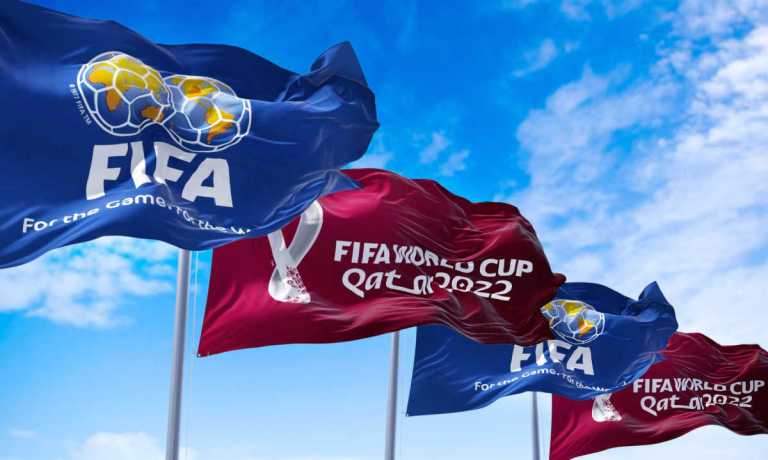Qatar World Cup Boosts Ride-Hailing, Food Delivery Demand Across MENA

Ahead of the World Cup opening ceremony on Sunday (Nov. 20), soccer fans from around the globe have been arriving in Qatar, giving an economic boost to the country’s tourism and hospitality sector.
But beyond the obvious beneficiaries of an influx of foreign visitors, World Cup spending has additional benefits that span the wider economy and extend into neighboring countries.
One company that has been ramping up its operations across the Gulf Cooperation Council (GCC) region in preparation for the tournament is the Uber-owned super app Careem.
The Dubai-based firm has added 1,000 cars to its Qatar fleet, an increase of 50%, while a new intercountry service will allow people to book rides from neighboring Saudi Arabia.
Thanks to a new scheme to allow Qatari residents to sign up as drivers in their personal cars during the 2022 FIFA World Cup, the company hopes to further bump up its capacity as the country welcomes an expected 2 million visitors for the event.
“This will increase the supply of transport options for visitors, while also creating even more flexible earning opportunities for residents,” Antonio Al Asmar, Careem’s general manager for the GCC, said in a Zawya report.
Related: Careem Boosts Food Delivery Space Footing With MUNCH:ON Acquisition
Dubai is also set to benefit from increased capacity as the firm announced that it is growing its fleet there in tandem.
As noted in a report published by ForwardKeys, a shortage of accommodations in Qatar has delivered a boost to hotels in Dubai as soccer fans look to the United Arab Emirates (UAE) city for an alternative location from which they can travel to games.
The firm’s analysis of flight data suggests that day trips will account for 4% of all arrivals in Qatar during the World Cup, 85% of which originate will in the UAE.
It also reveals that many World Cup visitors intend to visit other destinations in the region. For example, the number of people staying at least two nights in Qatar and going on to stay at least two more nights in another GCC country is expected to be sixteen times greater than it was during the same period in 2019.
Once again, Dubai is a major beneficiary of this trend, capturing 65% of onward visits. In order of popularity, other cities in the GCC to attract soccer tourists flying from Qatar include Abu Dhabi, Jeddah, Muscat and Madinah.
Food Delivery in High Demand
Restaurants and takeouts in cities that are hosting World Cup games are also set to experience a surge in demand.
Food delivery orders are likely to surge by 80% in Qatar on match days, Zawya reported on Wednesday (Nov. 16). Based on data from Redseer Consultancy, the increased activity is anticipated to spill over into the wider region.
Sandeep Ganediwalla, partner at Redseer, said for every $100 more spent on food delivery in Qatar, the UAE will see an equivalent $20 increase.
That means that across the region, food delivery firms are set to gain from higher demand.
In preparation, the GCC-focused platform Talabat launched its “Together We’re Unstoppable” campaign recently, reiterating its operational readiness to support the Qatari food sector as it welcomes millions of visitors from around the world.
As an official sponsor of the Qatari national team, Talabat will be participating in a number of events and initiatives, including the Lusail Winter Wonderland.
There, the company will provide visitors with easy ordering from food booths, so they can spend more time enjoying the entertainment instead of queuing. The platform is also hosting a fan terrace in the Pullman Doha West Bay throughout the tournament.
Read more: MENA Food Delivery Service Bucks Global Downward Trend as Europe Business Retreats
The latest Similarweb download rankings for food and drink delivery apps place Talabat in pole position, followed by McDonald’s, Snoonu, Table1 and Deliveroo, which launched in the country just last month.
Finally, food orders won’t be the only reason soccer fans turn to digital platforms for and the wider retail sector also will experience a boom in online purchases.
An analysis by Redseer published last week suggests the overlap of the World Cup with Black Friday retail events will help propel fourth-quarter online sales in North Africa and the Middle East (MENA) to $8.5 billion, an increase of $2 billion compared to the same period last year.
Based on a survey of MENA consumers, the Redseer report found that two-thirds of those who will engage with the World Cup expressed their intention to spend more, across retail sectors, during the tournament.
For all PYMNTS EMEA coverage, subscribe to the daily EMEA Newsletter.